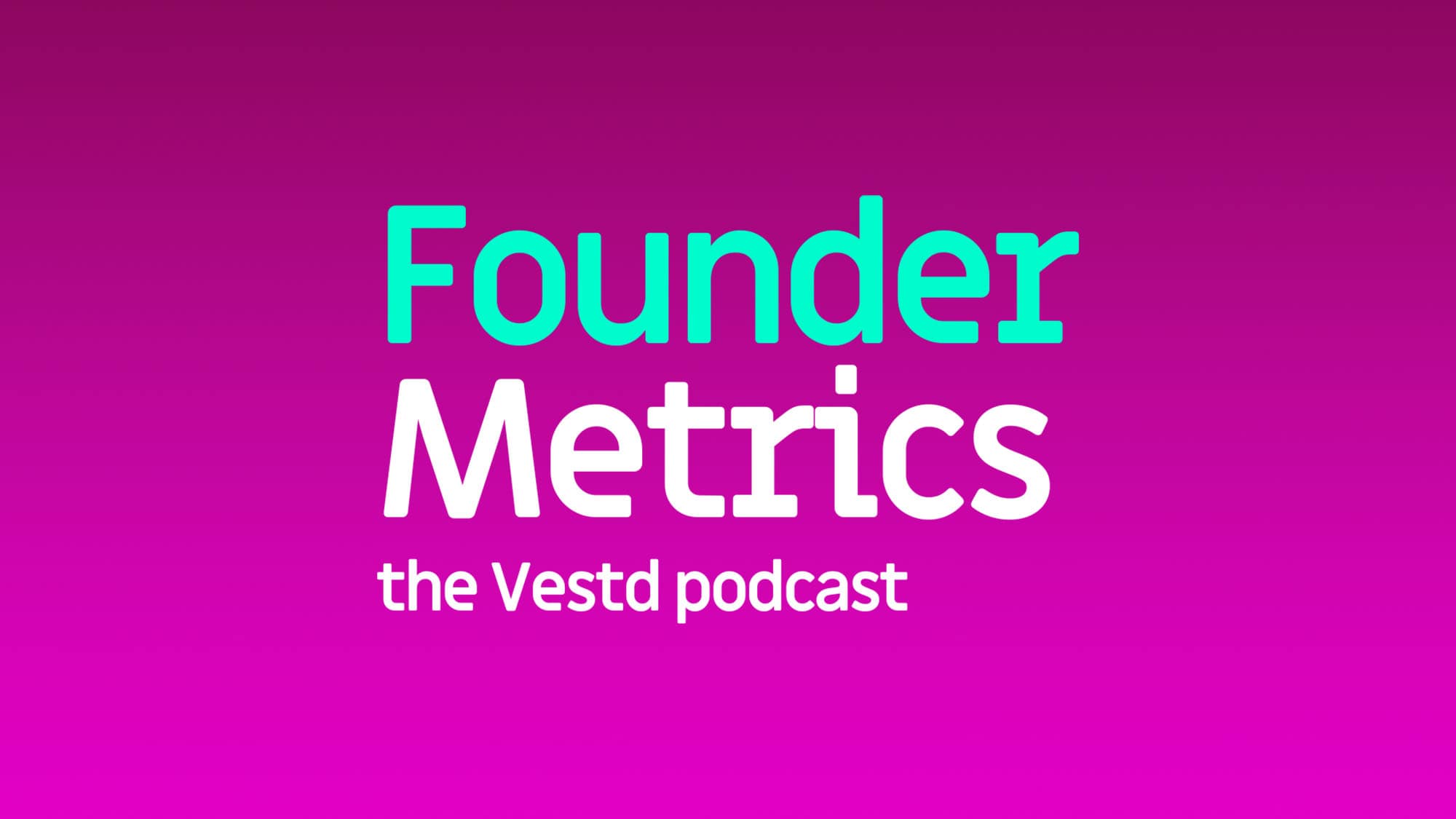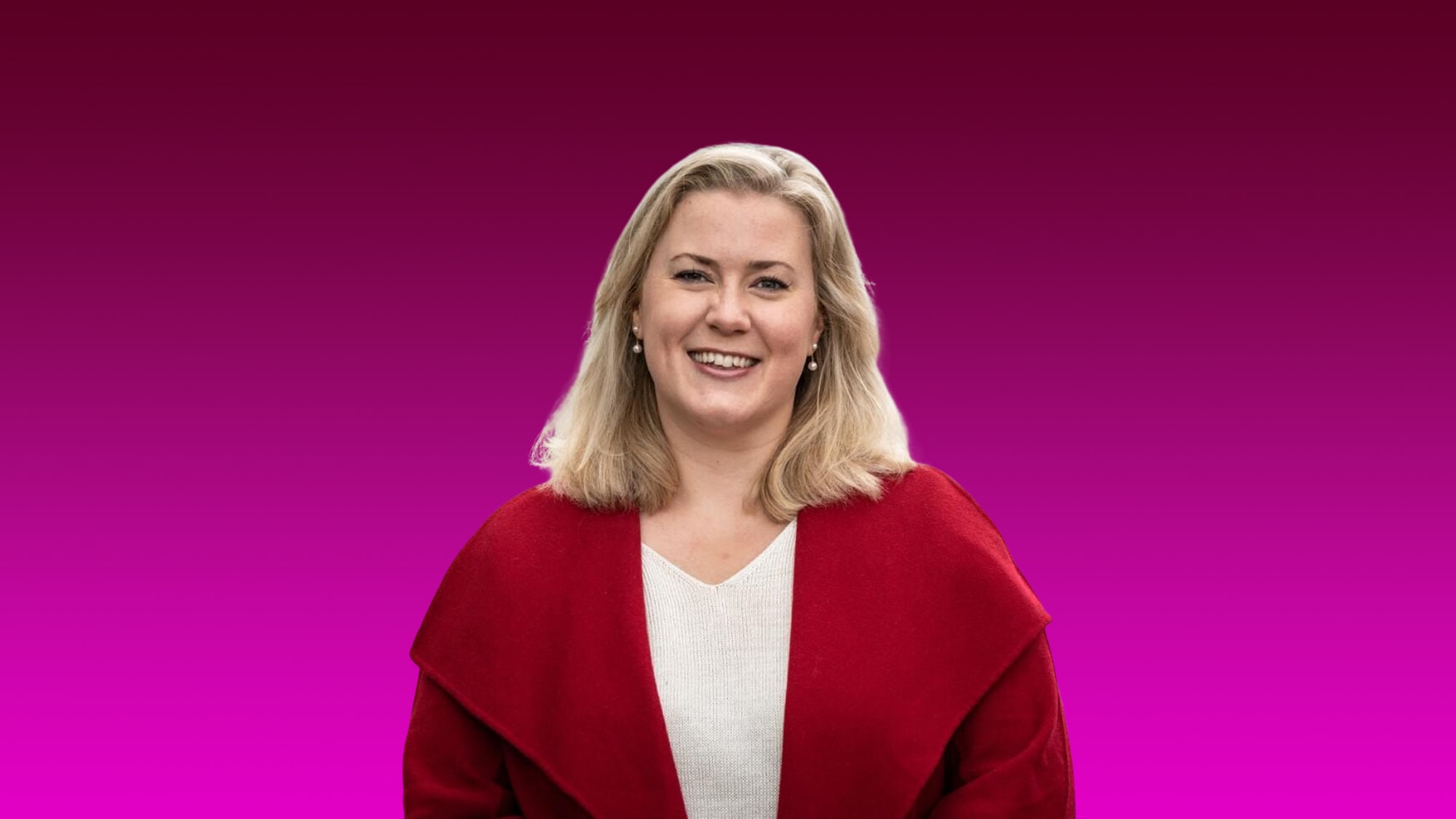Empowering entrepreneurs: top takeaways from FounderMetrics
FounderMetrics: a podcast by Vestd. Join Ifty Nasir as he uncovers the factors that forge success and those that spell disaster.
Manage your equity and shareholders
Share schemes & options
Equity management
Migrate to Vestd
Company valuations
Fundraising
Launch funds, evalute deals & invest
Special Purpose Vehicles (SPV)
Manage your portfolio
Model future scenarios
Powerful tools and five-star support
Employee share schemes
Predictable pricing and no hidden charges
For startups
For scaleups & SMEs
For larger companies
Ideas, insight and tools to help you grow

In this episode of FounderMetrics, Ifty Nasir is joined by Lev Perlman, the founder of tech agency Metamindz.
Lev talks about the war in Ukraine, helping clients make smart choices, not jumping on the bandwagon, and why AI isn’t everything.
You'll find highlights from the interview below, but why not listen to Lev's fascinating story in full? Tune in.
I worked as a developer, tech lead, CTO and as a freelancer for some time. I'm originally from Israel and came to the UK in 2019. And today, I run an agency helping founders and other agencies with anything technical. We do development CTO as a service, and we help with fundraising.
I moved to the UK on a Global Talent Visa. And that allows you to come to the UK and you don't have to work for a specific employer, you can essentially start your own businesses, and almost work for anyone. And that gives you the freedom you need to be an entrepreneur here.
Tech is difficult, and non-technical founders often do the wrong thing, because they don't have the right experience. I had my own B2B startups, I've worked with corporates and with startups.
So, what I bring is essentially - I'll be your friend, who's your CTO and or your technical co-founder. And we have other tech leads in the company who do that as well.
The goal is to help you make the right choices, be on the right path and avoid mistakes that you can avoid by just having that experience firsthand.
I often see founders chasing trends, or investing in technology too early. And I say, you don't need to do anything technology-related right now, you first need to do some research, and I'll help with the research. And only then maybe you'll build a product.
And that's not what agencies usually do. But I believe that's the right way to be a technical agency.
However, the main thing is you need to have certainty in your product or your solution, not just that it's the right solution to a problem, but also that people are going to pay what you expect them to pay.
There is no point in building a solution that nobody's going to pay for.
That doesn't make sense commercially.
The agency started when the war in Ukraine started. During my career before that, I managed quite a lot of people from Ukraine.
So, I know people there personally; I see how that affected their families and their lives.
I didn't plan to start an agency, I just wanted to help them in any way I could.
I thought the best way I can help them is to give them stable work, to offer them jobs that are going to help them get back on their feet. And if I can help them with relocation, I would do that too. And that's how it started.
Some of them are employees, like direct employees, and some of them are freelancers; it depends on their own circumstances. We have people from Ukraine and people who have moved to Europe as a result.
There are a lot of methodologies today. At the end of the day, you know if things are moving quickly and smoothly or not because you speak with the founders, and you see if their goals and KPIs are achieved.
Technology only exists to serve the business; there is literally no need to build an app or website if it does not achieve your goals as the founder. And you will know if it serves you well right now or not.
So, it's about constant communication with the founding team, as opposed to just tracking tickets or story points.
I would say I outsource to AI, so to speak; I would say around 30% of administrative stuff, and some creative things too, but not fully.
For example, if I need copywriting or images for social posts, or blogs, I use AI. And then I refine it manually to make sure it really achieves what I want.
I don't think we're still in a place where you can fully rely on AI and get good results; you would get stuff that's too generic if you just generate content. But it can really save you time with creating a structure or just kicking things off, and then you will refine it to make it proper.
It's very easy to have a high burn rate on a month-to-month basis by spending money on things you don't need.
For example, I think it's way too easy to rent offices. And I believe we are in a remote world today, or at least a hybrid world where you don't need that expense at all. You can save a lot of money by being remote.
You can save a lot of money by NOT building things.
It's very easy finding yourself building things because either it's trendy or because you just don't question it.
Let's say you use a third party tool for two years, and then you decide to build your own solution - at least then you know it's worth your while. And you've probably saved money over those two years.
Another tip is whenever you work on any product or any feature, you should not just think about how I am going to sell this one feature I'm just working on right now, but also about the next step:
What happens when my competitor sees it and releases the same or similar thing in a month?
How am I still going to stay on top of things? And the answer to that question is often not technical, once again, but rather strategic.
You'll find Lev’s episode and more on all major podcast platforms. You can also catch the interview in full on YouTube - don't forget to like and subscribe!

FounderMetrics: a podcast by Vestd. Join Ifty Nasir as he uncovers the factors that forge success and those that spell disaster.

Joining Ifty Nasir on the latest episode of FounderMetrics is Sonya Barlow, the award-winning founder of the LMF Network. Sonya is also a...

Joining Ifty Nasir for FounderMetrics episode six is Felicia Hjertman, the founder of TILLIT, a pioneering platform that makes it easier for ordinary...